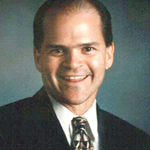Vision Therapy Goes Beyond Eyesight
Do you know someone who fits this scenario?
Optometrists have assured you that your child’s eyesight is normal, and yet he complains of headaches, has difficulty seeing the board in class, has a short attention span with schoolwork and avoids looking at the page when it comes time to read.
You’ve tried glasses. You’ve even tried ADHD medication.
You’ve spent countless hours helping him with homework, but those sessions last far too long and routinely end in a battle. You’re stymied – and the whole family is frustrated.
Teachers suggest that your child is a slow learner or a low achiever.
But you know your child better than anyone, and he is bright, curious about life and full of eagerness to learn.
What’s wrong? The situation feels hopeless.
Dr. Rick Graebe, a behavioral optometrist in Versailles, has witnessed this scenario many times in his practice.
Over the years, Graebe has restored hope for families through a prescription of Vision Therapy that addresses not merely vision – farsightedness, nearsightedness, etc. – but the entire visual system.
Vision Therapy is a kind of a physical therapy for the eyes, mind and body.
If an initial exam shows that a child has problems with either visual efficiency (how well the eyes and muscles function) or vision processing (how well the brain understands information the eyes transmit), the child embarks on a program of sequenced activities.
And the activities are fun for children. They play pencil and puzzle games, bounce and handle balls, and perform other activities that involve the body.
“Most eye doctors deal with just eyesight,” Dr. Graebe explains. “Vision Therapy deals with the eyes, brain and body, and how they work together.”
Does Vision Therapy work?
The walls of Dr. Graebe’s office are covered with testimonials from grateful parents and children, who have seen their school performance improve by as much as three years.
“What gratifies me, what makes me excited about coming to work, is the fact that we change lives,” Dr. Graebe said. “It’s an awesome feeling!”

